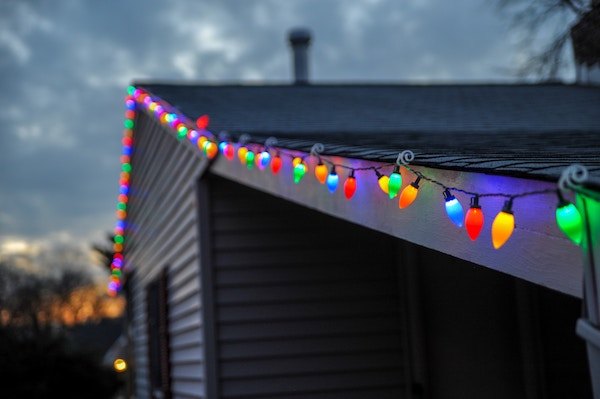
An air conditioning system can take about ten to twenty years before it needs to be replaced, but this lifespan is dependent on how often it gets aircon maintenance from an aircon servicing crew in Singapore. This is especially true with air conditioning systems for commercial and industrial buildings, but even residential aircon units are prone to the same problems.
The best aircon servicing company in Singapore understands how these units work and are willing to send technicians for repairs, maintenance, and inspection. Here are some of the commonly asked questions you might encounter about air conditioning.
What are the common problems in air conditioning?
Some of the most common air conditioner problems encountered by aircon repair companies are refrigerant leaks, worn-out compressor, faulty fan controls, sensor issues, drainage problems, and poor overall maintenance. Most of these problems can be addressed without having to spend too much on aircon servicing if stick to a scheduled aircon maintenance. Minor problems will be solved as early as possible and the aircon technician can also recommend steps to extend the unit’s lifespan.
How do I diagnose the problem?
Aircon problems are quite easy to detect if you know what signs to look for. First, check the quality of the air produced by the unit. Is it slightly warmer in other parts of the room? Are there strange sounds and odors coming from the unit? Does the thermostat work properly? Does the fan work if you turn it on? Do you see any leaks in the unit? Has the aircon been inspected in the last six months? If you suspect there is a problem with your aircon, call the nearest aircon maintenance company for a checkup.

What are the factors to consider when installing an aircon?
Call a reputable aircon servicing crew if you need a new aircon unit installed. Most of the problems listed above can be minimized with proper installation, because factors such as exterior installation, the position of the unit, the area of the room that needs to be cooled, and the number of hour the unit has to be used.
How do I determine if the aircon needs repair?
If your air conditioning unit has stopped working or is not working properly, you should check if there is a display on the thermostat and see if the blower is working by turning on the fan. There could also be a problem in the condenser or the source of the power, so make sure that the aircon is getting enough power or the fuses have not been tripped. If you don’t have any experience with handling the air conditioner or the power source, turn off the aircon and call the nearest aircon repair shop in Singapore for an inspection.
What is HVAC?
It stands for heating, ventilation, and air conditioning, the collective name for a system used in large buildings that provide both heating and cooling. In some buildings, the two systems operate separately using several different equipment. You will often hear this term for most commercial and industrial buildings in Singapore such as offices, hotels, and residential complexes that need both air conditioning and water heating services.
How often should aircon maintenance be performed?
Ideally, residential type air-conditioners should be checked by a professional at least once a year, but clogged air filter must be cleaned once a week or once every two weeks. Aircon maintenance should be done even if there are no obvious problems with the AC unit. For commercial and industrial buildings in Singapore, it is recommended to upkeep air cooling systems at least twice a year by an AC servicing personnel. These pros have the right tools and experience to properly clean and maintain your unit, as well as detect any small issue that can potentially turn into a costlier damage.
When should the aircon be replaced?
An air conditioner than is ten years or older might have to be replaced if it needs more repair than usual, it is eating up more energy than it used to, there is a refrigerant leak, and if you can’t afford the aircon repair bills anymore.

How often should I replace the filter?
The air filter should be cleaned regularly or replaced after several months to make sure that the quality of the cool air is maintained. Read the user’s manual that came with your air conditioner to determine the best size. Each filter also comes with a unit of measurement that indicates its effectivity. This is indicated by the word MERV or minimum efficiency reporting value.
The higher the number, the more effective the filter is. The air filter can be washable, pleaded, electronic or made from fiberglass. Your trusted aircon maintenance technician can also recommend which filter you should use and it would be better to let a professional handle the cleaning and replacement.
Why does the aircon keep freezing up?
This is a common problem in most aircon units and can be caused by any of the following factors: low refrigerant level, dirty or clogged air filter, closed vents, blocked or dirty evaporator coils, dirty or broken fan, and incorrect thermostat settings. If cleaning the filter and resetting the thermostat does not improve the quality of the cool air from the aircon, turn off the unit and call the nearest aircon servicing company in Singapore for an evaluation. Do not turn it on again because you could damage the compressor if the unit is not working properly.
How do I know if there are leaks?
Aircon units sometimes leak, but the amount of the leak and where it is coming from can indicate that the unit has a problem. Leaks can be caused by faulty installation, low refrigerant levels, clogged condensate line, dirt evaporator coil, rusting condensate pan, and dirty air filter.





